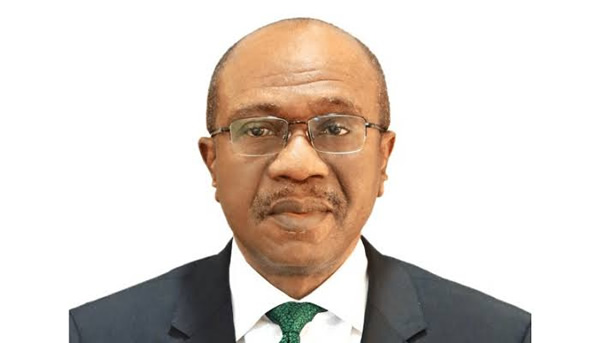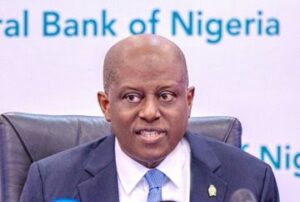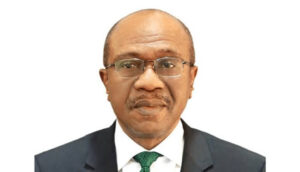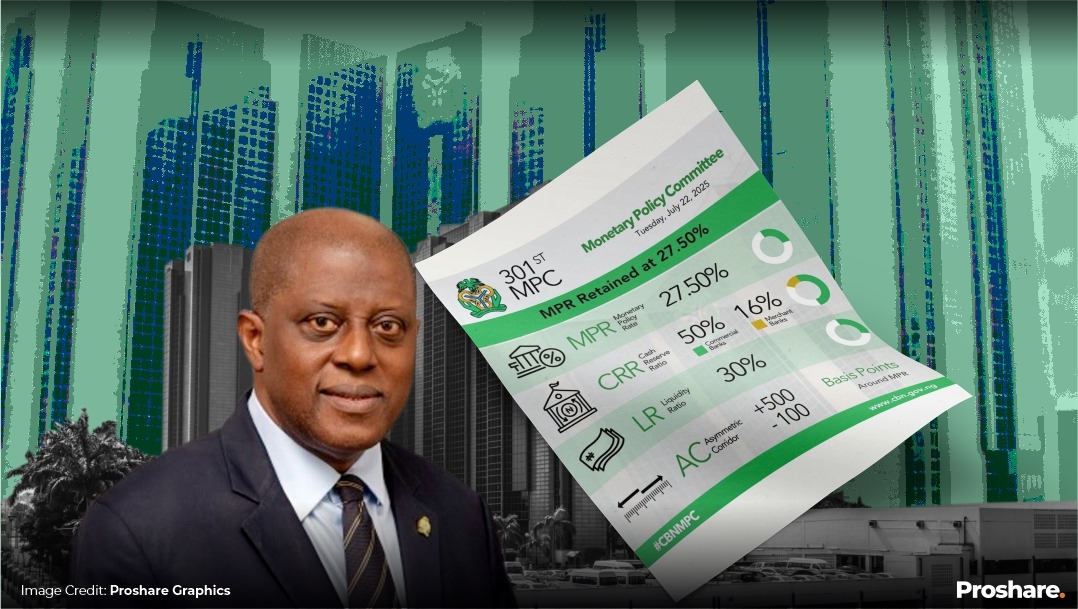
UPDATED: CBN Reduces Interest Rate to 27% – First Cut Since 2020
- Business
- 25.09.2025
- No Comment
- 17
CBN Reduces Interest Rate to 27% – First Cut Since 2020
The Central Bank of Nigeria (CBN) has taken a significant step by reducing the country’s benchmark interest rate to 27.00 per cent, marking the first cut since 2020. This decision, announced by Governor Olayemi Cardoso at a press briefing in Abuja, follows the conclusion of the 302nd Monetary Policy Committee (MPC) meeting held on September 22 and 23, 2025.
All 12 members of the MPC were in attendance, signaling a strong consensus on the decision. This move is a key development in Nigeria’s monetary policy as the economy seeks to balance inflation control with growth stimulation.

Governor Cardoso detailed the committee’s decisions in a comprehensive policy shift designed to support economic recovery while managing inflationary pressures. The major resolutions include:
- Reduction of the Monetary Policy Rate (MPR): The rate was cut by 50 basis points to 27.00 per cent.
- Adjustment of the Standing Facilities Corridor: Now set at +250/-250 basis points around the MPR.
- Increase in Cash Reserve Requirement (CRR) for Commercial Banks: Raised to 45 per cent.
- Retention of Merchant Banks’ CRR: Remains at 16 per cent.
- Introduction of a 75 per cent CRR on Non-TSA Public Sector Deposits: Aimed at absorbing excess liquidity.
- Liquidity Ratio: Unchanged at 30 per cent.
This combination of measures shows the CBN’s dual strategy of easing rates to encourage lending while tightening liquidity to prevent inflationary overshoot.

According to Cardoso, the committee’s decision to cut the interest rate was justified by several positive economic indicators:
- Sustained disinflation: Inflation has been moderating for the past five months.
- Projected decline in inflation: Forecasts suggest continued downward trends for the rest of 2025.
- Support for economic recovery: Lower borrowing costs are expected to stimulate investment and consumption.
This marks a clear policy shift from the previous tightening stance of six consecutive hikes in 2024 followed by three pauses in early 2025.
The MPC noted several encouraging inflation metrics that underpinned its decision:
- Headline Inflation: Moderated to 20.12 per cent in August from 21.88 per cent in July.
- Food Inflation: Dropped to 21.87 per cent from 22.74 per cent.
- Core Inflation: Eased to 20.33 per cent from 21.33 per cent.
- Month-on-Month Inflation: Slowed sharply to 0.74 per cent in August compared to 1.99 per cent in July.
These figures point to a gradual but steady cooling of price pressures, giving the CBN room to lower rates without reigniting inflation.

This is the first interest rate cut under Governor Olayemi Cardoso’s leadership and the first in five years. The last time the CBN cut its benchmark interest rate was in September 2020, when it lowered the MPR from 12.5 per cent to 11.5 per cent under the previous administration. Since then, Nigeria had embarked on an aggressive tightening cycle to curb inflation and stabilize the naira.
Beyond inflation, the MPC highlighted positive momentum in Nigeria’s economic growth. In Q2 2025, GDP expanded by 4.23 per cent, up from 3.13 per cent in Q1. This growth was driven largely by a rebound in the oil sector, which grew by a remarkable 20.46 per cent compared with just 1.87 per cent in the previous quarter.
The committee commended the Federal Government’s efforts to improve security in oil-producing regions, emphasizing that sustained production growth will bolster external reserves and foreign exchange stability.
Nigeria’s external reserves stood at $43.05 billion as of September 11, 2025, up from $40.51 billion at the end of July. This provides an import cover of 8.28 months, a significant buffer for the economy.

The current account balance also posted a surplus of $5.28 billion in Q2, compared with $2.85 billion in Q1, further strengthening the country’s external position.
Cardoso confirmed that 14 banks have already met the new recapitalisation requirements, underscoring the resilience of Nigeria’s financial sector. He noted that financial soundness indicators remain within prudential benchmarks, ensuring the stability of the banking system even amid policy shifts.
The new CRR measures introduced by the MPC are specifically designed to absorb excess liquidity arising from fiscal releases, thereby strengthening monetary policy transmission.
The next Monetary Policy Committee meeting is scheduled for November 24 and 25, 2025. Analysts will be closely watching whether the CBN continues its easing cycle or pauses to evaluate the impact of the current measures.
The MPC also projected that disinflation will persist, supported by exchange rate stability, declining PMS prices, and the harvest season.
Nigeria’s move to cut its rate mirrors a wider continental shift in monetary policy. Across Africa, central banks have begun easing rates in response to slowing inflation:
- Ghana: Slashed its policy rate by 350 basis points to 21.5 per cent last week.
- Kenya: Trimmed its benchmark rate to 9.5 per cent in mid-August.
Despite this cut, Nigeria’s benchmark rate remains the highest among its peers, reflecting the country’s still-elevated inflation pressures.
The CBN’s decision to reduce its benchmark interest rate to 27 per cent marks a turning point in Nigeria’s monetary policy. With inflation showing signs of easing, external reserves strengthening, and GDP growth accelerating, the central bank is seeking to strike a delicate balance between stimulating growth and maintaining price stability.
As the November 2025 MPC meeting approaches, businesses, investors, and households alike will be keenly watching how these measures play out in the broader economy.





